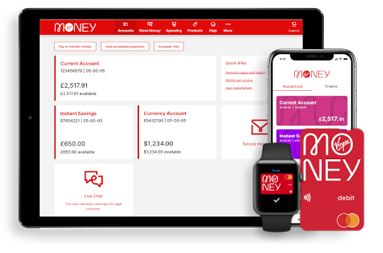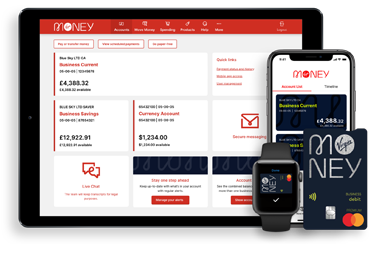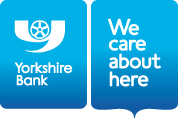-
Login
More Login links
Internet Banking
Business Internet Banking
Started an application?
Other services
Help
-
Register
More Register links
Internet Banking
Business Internet Banking
Other Services
- Our Products More business product links
Bank accounts
- Business current account
- Business choice account
- Switching business accounts
- Compare all business accounts
Savings accounts
Loans and Finance
- All Treasury solutions
Treasury solutions
Help and support
- Online Banking More online banking links
BusinessOnline
- Commercial More commercial business links
Business enquiries
Contact us about a general enquiry.
- Corporate and Structured Finance More corporate business links
Corporate and Structured Finance
SME Cashflow Finance
Unlock your cash flow potential. At Yorkshire Bank we take a flexible approach to business borrowing.
Lending is subject to status and eligibility.
- Our Sector Expertise More sector expertise links
How to value goodwill when buying or selling a business
< back to all business news articles
27/09/2017
Goodwill is often a big part of a business's overall value, and one of the hardest to calculate. Unlike tangible assets such as equipment which is easier to value, it's not easy to put a price on the reputation you've built up with your customers and suppliers.

What is goodwill?
Goodwill is an additional payment for a business over and above the net assets (add up all the assets and deduct the liabilities). It tries to reflect you’re buying a business as a ‘going concern’, with things like existing cash flow, loyal customers, processes and supplier agreements and great staff already in place.
When you’re working out goodwill it’s likely to be more if the business has:
- Great relationships with customers and suppliers that will continue.
- Protected intellectual property that gives you an advantage in the market place.
- Brilliant location with a secure long lease.
- Good cash flow and no debt.
- Documented business systems and processes a new owner can pick up.
- Loyal, knowledgeable and experienced staff who’ll stay on.
- A good long-term future with sustainable demand and few competitors
The better these are, the more goodwill. And vice versa of course.
How to calculate goodwill
It can be a complicated process, and different methods will give different results. Ultimately the value is what the marketplace or buyer is willing to pay, regardless of what you may think.
Calculating goodwill using average profits
This is the simplest and a common method to calculate goodwill, where goodwill is equal to the average profits for a set time period, multiplied by the number of years you think the previous owner’s goodwill will last, i.e.,
Goodwill = Average Profits X Number of Years

Step 1:
Decide on an average profit over the last few years by reviewing the Profit and Loss Account. Check your numbers. Make sure that you take the following into account:
- Any abnormal profits like one off sales, or large contracts that have ended, should be deducted from the net profit in the year that they were earned as they’re unlikely to continue.
- Any abnormal losses such as writing off any obsolete equipment should be added back to the net profit in the year they were incurred.
- Non-operating income like income from investments that are not part of normal business should be deducted.
Step 2:
Estimate how long you believe the ‘goodwill’ of the current business will last. If the business is a ‘turn key’ business where it’ll make money for 3-5 years without you needing to change anything, then multiply the average profit by 3-5 to get a goodwill amount.
At the opposite end of the scale is a business which has either very low or no profit, or the business needs significant improvements. In this case the goodwill may be zero.
You don’t have to pay goodwill. If you’re buying the business and the goodwill is excessive, ask yourself if it would be cheaper and better to start from scratch. It just may well be.
Other valuation methods
There are a number of other methods such as:
- Market valuation less net assets. If the business has been valued by a business broker, find out the net assets and then subtract this amount from the price. The remaining amount is what they are asking goodwill for.
- An industry profit multiplier. Businesses that are bought and sold on a regular basis can often have an accepted net profit ‘multiplier’ applied. For example, if recent local restaurant sales all ended up being on average 1.5 -2 times cash flow, you could predict something similar. Again by deducting the net assets, you’ll end up with what you’re paying for goodwill.
Summary
The methods described are the most common ways to value goodwill in a business, for both buyers and sellers. However, you are best to seek the help of professionals such as specialist industry business brokers, accountants or business advisors to determine the best way to value goodwill.
Additional resources
POSTED IN: Finance advice,2017
SHARE
Related Articles
You are here: Business Banking > Business News > Articles
- About Yorkshire Bank
- About us
- Virgin Money UK PLC
- Media relations
- Careers
- Modern Slavery Statement

Internet Banking has moved
To log into Internet Banking you now need to use Virgin Money Internet Banking. You'll get the same great service and are able to access all your accounts.
Your log in details will stay the same and you can log in directly from the shiny new Virgin Money website.
Continue to Virgin Money Internet Banking
Go to the Virgin Money website
Be Alert
Never tell anyone a token 3 response code, even someone from the bank. You should only input these codes to our secure Business Internet Banking service when you’re sending and making payments. If anyone calls and asks for a token 3 response code or asks you to authorise a payment on the App for fraud checks, hang up and call us on 0800 085 2914 from another line if possible, remember the Bank will never ask you to disclose your security details.
Continue to Virgin Money Business Internet BankingYou can find impartial information and guidance on money matters on the “MoneyHelper” website.
Yorkshire Bank is covered by the Financial Services Compensation Scheme (FSCS), Find out more.
